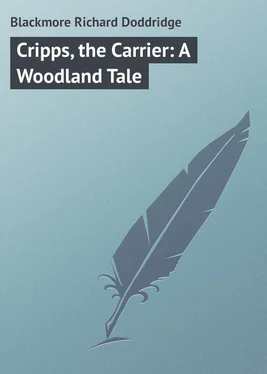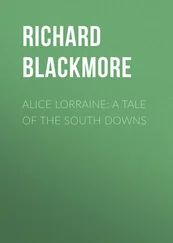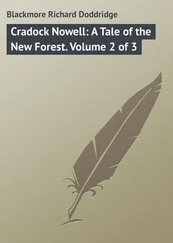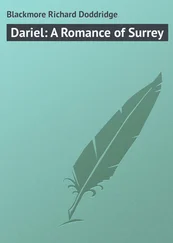Richard Blackmore - Cripps, the Carrier - A Woodland Tale
Здесь есть возможность читать онлайн «Richard Blackmore - Cripps, the Carrier - A Woodland Tale» — ознакомительный отрывок электронной книги совершенно бесплатно, а после прочтения отрывка купить полную версию. В некоторых случаях можно слушать аудио, скачать через торрент в формате fb2 и присутствует краткое содержание. ISBN: , Жанр: foreign_prose, на английском языке. Описание произведения, (предисловие) а так же отзывы посетителей доступны на портале библиотеки ЛибКат.
- Название:Cripps, the Carrier: A Woodland Tale
- Автор:
- Жанр:
- Год:неизвестен
- ISBN:http://www.gutenberg.org/ebooks/43281
- Рейтинг книги:4 / 5. Голосов: 1
-
Избранное:Добавить в избранное
- Отзывы:
-
Ваша оценка:
- 80
- 1
- 2
- 3
- 4
- 5
Cripps, the Carrier: A Woodland Tale: краткое содержание, описание и аннотация
Предлагаем к чтению аннотацию, описание, краткое содержание или предисловие (зависит от того, что написал сам автор книги «Cripps, the Carrier: A Woodland Tale»). Если вы не нашли необходимую информацию о книге — напишите в комментариях, мы постараемся отыскать её.
Cripps, the Carrier: A Woodland Tale — читать онлайн ознакомительный отрывок
Ниже представлен текст книги, разбитый по страницам. Система сохранения места последней прочитанной страницы, позволяет с удобством читать онлайн бесплатно книгу «Cripps, the Carrier: A Woodland Tale», без необходимости каждый раз заново искать на чём Вы остановились. Поставьте закладку, и сможете в любой момент перейти на страницу, на которой закончили чтение.
Интервал:
Закладка:
The three men grinned at one another, and proceeded leisurely. They knew much better than the Squire himself what his gentle nature was, and that he always expiated a scolding with a jug of beer.
"Man and boy," said the eldest of them, speaking below his breath, as if this tyranny had extinguished him; "in this here gearden have I worked, man and boy, for threescore year, and always gi'en satisfaction. Workuss! What would his father a' said, to hear tell in this gearden of workuss? Workuss! Well, let un coom, if a will! Can't be harder work, God knoweth."
"Tummuss, Tummuss, you may say that," said another lazy rascal, shaking his head, with his heel on his spade, and then wiping his forehead laboriously. "'Tis the sweat of our brow, Tummuss, none of 'em thinks on – but there, they was born to be driving of us!"
Squire Oglander made as if he heard them not; and then he hurried to the hedge again, and stood on the wall of the leaf-mould pit, and peered over the beard of hollies. And this time he spied in the distance Cripps, or at any rate the tilt of the Crippsian cart, jogging sedately to the rhythm of the feet of Dobbin.
"Hurrah!" cried the Squire, who was still as young in mind as if he had no body. "By George, we shall be just in time. Never mind what I said, my lads. I was a little bit cross, I know. Take out the crumbs from the bottom of your trenches, and go two inches deeper. Our new potatoes are come at last! Mary, come out with a gallon of ale."
Squire Oglander, having retired now from the army and all warfare, was warmly devoted to the arts of peace. Farming, planting, gardening, breeding, training of dogs, and so on – all of these quiet delights fell softly on a very active mind, when the vigour of the body began to fail. He loved his farm, and he loved his garden, and all his attempts at improvement, and nothing better than to point out his own mistakes to rash admirers. But where is the pleasure of showing things to strangers who know nothing? The old man's grand delight of all was to astonish his own daughter, his only child, Grace Oglander.
This it was that made him work so hard at the present moment. He was determined to have his kitchen garden in first-rate winter order by the time his daughter should come home from a visit to her aunt at Cowley. Now this sister, Mrs. Fermitage, had promised to bring home their joint pet Gracie in time for the dinner at five o'clock that very day, and to dine there with them; so that it was needful to look alive, and to make quick step of everything. Moreover, this good Squire had some little insight (as behoves a farmer and a sportsman) into the ways and meaning of the weather of the neighbourhood. He knew as well as a short-tailed field-mouse that a long frost was coming. The sharp dry rustle of the upturned leaves of holly and of ivy, the heavy stoop of the sullen sky, the patches of spaded mould already browning with powdery crispness, the upward shivering look of the grass, and the loss of all gloss upon everything, and the shuddering rattle in the teeth of a man who opened his mouth to the wind at all – many other things than these, as well as all of them, were here; that any man (not blind, or deaf, or choked in citied ignorance) might fall to at once, and dig every root of his potatoes.
But the strange thing, in this present matter, was that Squire Oglander was bent not only on digging potatoes, but also on planting them, this very day. Forsooth it was one of his fixed dates in the chronicles of the garden, that happen what might, or be the season whatsoever it chose to be, new potatoes and peas he would have by the last day of May, at the latest. And this without any ignoble resort to forcing-pit, hot-bed, or even cold frame; under the pure gaze of the sky, by that time they must be ready. Now, this may be easy at Ventnor, or Penzance, or even Bournemouth; but in the highlands of Oxfordshire it requires some skill and management. In the first place, both pea and potato must be of a kind that is ready to awake right early; and then they must be humoured with a very choice place; and after that they must be shielded from the winter's rages. If all these "musts" can be complied with, and several "ifs" are solved aright, the gardener (eager as well as patient) may hope to get pleasure from his early work.
Of all men there was none perhaps more capable of hoping than this good Squire Oglander. In his garden and his household, or among his friends and neighbours, or the world at large, he not only tried to see, but saw, the very best side of everything. When things fell out amiss, he always looked very wise, and shook his head, and declared that he had predicted them; and before very long he began to find out that they were not so bad as they might have been. His ruddy face, and blue eyes, and sometimes decidedly waggish nose, as well as his crisp white hair, and way of standing to be looked at, let everybody know that here was a man of no great pretension, yet true, and of kind and happy heart, and fit to be relied upon. Ten thousand such may be found in England; and they cannot be too many.
"Inside and outside, all look alive!" cried this gentleman, running to and fro: "Gracie will be home; Miss Grace, I mean; and not a bit of fire in the drawing-room grate! No Christmas-boxes for any of you sluts! Now, I did not mean that, Mary, as you might know. Inside the women, and outside the men – now, what is this paper for, my dear?"
"That there Cripps, sir, have a sent 'un in. He be gettin' so pertikular!"
"Quite right. Quite right. Business is business. No man can be too particular. Let him sit down and have a pint of ale. He wants me to sign this paper, does he? Very well; tell him to come next week. My fingers are cramped with the wind. Tell Cripps – now, don't you be in such a hurry, Mary; Cripps is not a marrying man."
"As if I would touch him with a pair of tongs, sir! A Hookham to have a Cripps, sir! – a man who always smells as if he had been a-combing of a horse!"
"Ah, poor Mary, the grapes are sour. Tell bachelor Cripps to send in the bag. And bring me the little truck-basket, Mary; I dare say that will hold them. Just in time, they are only just in time. To-morrow would have been a day too late."
The Squire was to pay a guinea for this bushel of early oakleaf potatoes, a sort that was warranted to beat the ashleaf by a fortnight, and to crop tenfold as much. The bag had been sent by the Henley coach from a nursery near Maidenhead, and left at the Black Horse in St. Clement's, to be called for by the Beckley carrier.
"Stay now," cried the Squire; "now I think of it we will unpack the bag in the brewery, Mary. They have had a fire there all the morning. And it will save making any mess in here. Miss Grace is coming, bless her heart! And she'll give it to me, if she finds any dirt."
"But, sir, if you please, Master Cripps now just is beginning of his pint of ale. And he never hurrieth over that – "
"Well, we don't want Cripps. We only want the bag. Jem will bring it into the brewery, if you want to sit with Cripps. Cripps is tired, I dare say. These young men's legs are not fit for much. Stop – call old Thomas; he's the best, after all. If I want a thing done, I come back to the old folk, after all."
"Well, sir, I don't think you have any reason to say that. Howsomever, here cometh Mr. Kale. Mr. Kale, if you please, you be wanted."
Presently Thomas Kale, the man who had worked so long in the garden there, followed his master across the court, with the bag of potatoes on his back. The weight was a trifle, of course, being scarcely over half a hundredweight; but Thomas was too old a hand to make too light of anything.
"I've knowed the time," he said, setting down the sack on the head of an empty barrel, "when that there weight would have failed, you might say, to crook my little finger. Now, make so bold – do you know the raison?"
Читать дальшеИнтервал:
Закладка:
Похожие книги на «Cripps, the Carrier: A Woodland Tale»
Представляем Вашему вниманию похожие книги на «Cripps, the Carrier: A Woodland Tale» списком для выбора. Мы отобрали схожую по названию и смыслу литературу в надежде предоставить читателям больше вариантов отыскать новые, интересные, ещё непрочитанные произведения.
Обсуждение, отзывы о книге «Cripps, the Carrier: A Woodland Tale» и просто собственные мнения читателей. Оставьте ваши комментарии, напишите, что Вы думаете о произведении, его смысле или главных героях. Укажите что конкретно понравилось, а что нет, и почему Вы так считаете.












